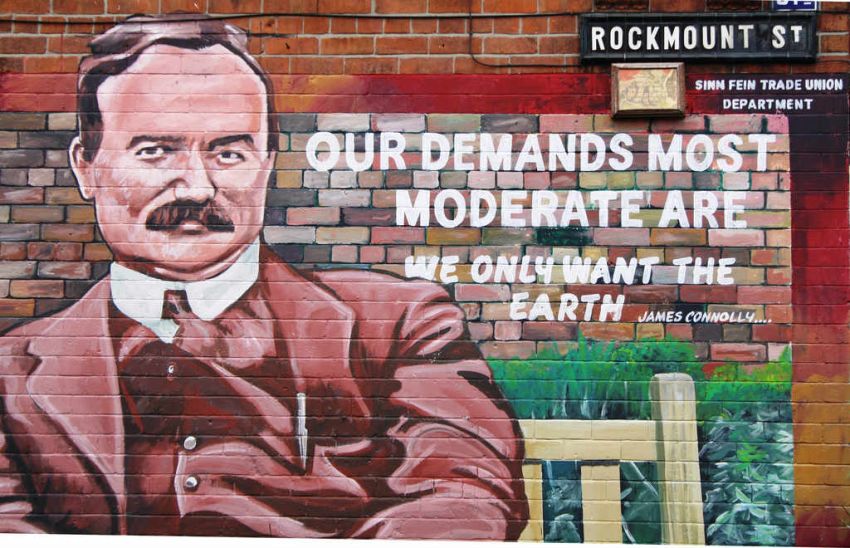
She died. Thankfully, indignant voices from around the world pierced the blanket of tedious reverential coverage.
Irish voices, Indigenous voices and people from all the parts of the globe who were brought under the heel of the British Empire in the name of The Crown spoke about how their ancestors were slayed by sword, cannon, disease, starvation and machine gun — in some cases within living memory.
They were not going to be told to shut up “out of respect”.
It has been pretty weird to have to point out to otherwise intelligent people that whether Mrs Windsor was a nice person or not is irrelevant.
An institution that derives its “legitimacy” from the “divine right of kings” is an anti-democratic abomination.
It is tempting to dismiss the British royal family as an outdated relic, which it is, or to minimise it as nothing more than a bit of feudal tinsel tacked on to the side of the modern state, serving no useful purpose other than to give tourists something to photograph.
But the highly choreographed media hype (that put the North Korean regime to shame) tells us that it performs a very modern function.
No one put it more succinctly than the Irish Republican, socialist and trade unionist James Connolly who was executed by British firing squad in Dublin for his part in the 1916 Easter Rising.
“A people poisoned by the adulation of royalty can never attain social freedom. The mind accustomed to political kings can easily be reconciled to social kings — the capitalist kings of the workshop, the mill, the railway, the ships and the docks,” Connolly said.
Mrs Windsor and the people around her did “modernise” the monarchy. They made it fit for contemporary capitalism by perpetuating the notion that some people are “born leaders” and by providing fodder for celebrity distraction.
However, the outpouring and nostalgia was not entirely manufactured.
It’s tied up with the fact that she took the throne when she was young in a period coinciding with rising prosperity in Britain and Australia, including for workers.
For some, it was like the passing of a pop star they associate with the golden years of their youth, when things were better.
But those times faded long ago.
At the end of the post-war boom, capitalists in the rich countries ripped up the social contract and introduced austerity, privatisation and insecure work.
Traditional conservative and centre-left parties alike inflicted these neoliberal “reforms” on working people, setting in train the long-term decline of the stable “two-party system”.
Alongside this, contempt for politics and politicians started to grow.
In the minds of less rebellious subjects, the “modern” monarchy including Mrs Windsor’s “tireless service” attached an aura of timeless stability to the state.
Perversely, this functioned to protect the very forces inflicting pain on them.
Crooked politicians come and go, but not solid as a rock Good Old Lizze. Doing what exactly did not really matter. The point is she just soldiered on.
This pitiful delusion is like the loyal mediaeval peasant suffering the ruthless exploitation and arbitrary violence of the local lord, who comforts themselves in the belief that the King would surely set things right, if only he knew what was going on.
However, despite media adulation and the coming coronation hocus-pocus, the capitalist state will struggle to carry over reverence for Mrs Windsor to her successors.
“King” Charles is not going to provide much distraction from the grinding austerity of neoliberalism, nor solve the housing affordability crisis destroying young people’s futures.
This makes it obvious that any call to make Australia a republic that is disconnected from addressing the very real social and ecological crises will not be enough.
Worse, it risks being a cosmetic change designed to protect the status quo.
We need a republic, but one that is based on Treaty with real land rights and a constitution that guarantees human rights and the protection of the Earth’s life systems.
But that kind of change is not what big business wants, which is why the capitalist media generally responds with: “If it ain’t broke don’t fix it.”
It ain’t broke for the big end of town. In fact, it’s working very well, so why even risk a conversation about constitutional change?
This partly explains the hidebound resistance to confronting the meaning of January 26 and why the Liberal Party is nervous about supporting something as modest as the Indigenous Voice to Parliament.
Treaty and a Bill of Rights is the kind of republic we do need. But we will only get there from escalating the still too small and fragmented struggles for social justice and the environment.
Capitalism cannot and will not solve the gathering crises, but it is forcing more people to think about politics and the world around them.
There is no guarantee though that everyone will break to the left when that happens. The rise of the far-right in much of Europe is proof of that.
The best protection is to join Socialist Alliance, help build the movements for change and convince people that a better world is possible.
[Sam Wainwright is a co-convenor of Socialist Alliance.]